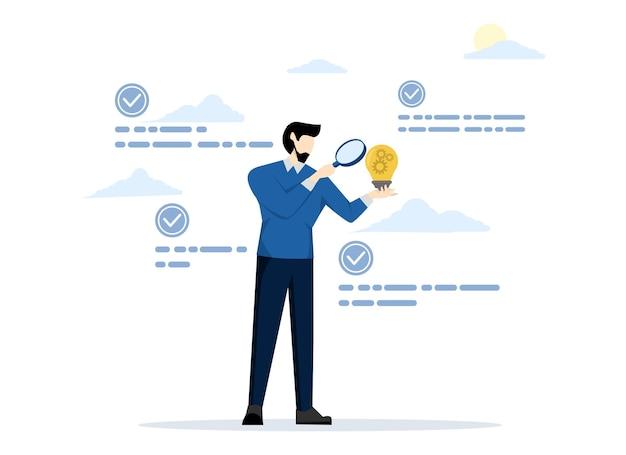As we embark on another year of personal growth and development, it’s essential to consider the significance of personal development plans. Whether you work in childcare or any other field, having a clear roadmap for self-improvement can pave the way for success. But who should be involved in agreeing on a personal development plan? In this blog post, we will explore this vital question and shed light on the key stakeholders who play a crucial role in shaping personal development plans in childcare settings.
Having a personal development plan is not solely about individual aspirations; it’s also about fostering a supportive environment where everyone can thrive. From managers to colleagues, and even the individuals themselves, the collaborative effort of multiple parties ensures a well-rounded personal development strategy. So, let’s delve into the various individuals who should come together to craft effective personal development plans, paving the way for professional growth and success.

Who Should Be Involved in Agreeing a Personal Development Plan?
Creating a personal development plan requires collaboration and input from various individuals. Here, we will explore the key stakeholders who should be involved in the process of agreeing upon a personal development plan.
1. Yourself – After All, It’s Personal!
You are the main protagonist when it comes to your personal development journey. Who knows you better than yourself? By actively participating in the creation of your development plan, you take ownership and shape the direction of your growth. So grab a pen and get ready to dive deep into self-reflection!
2. The Enlightened Boss – Your Guide to Success
Your boss plays a crucial role in your professional growth. Engage in open discussions with your boss to gain insights into the organization’s long-term vision, departmental goals, and skill requirements. By aligning your personal objectives with those of the company, you set yourself up for success. Plus, who doesn’t want to impress the one who signs the paychecks?
3. The Trusted Mentor – Wise Advice From the Jedi
A mentor is like that wise, experienced Jedi guiding you through your personal development journey. Seek out a mentor who embodies the skills and expertise you aspire to acquire. By tapping into their knowledge and experience, you gain a valuable perspective outside your direct work environment. And hey, it’s always good to have a Yoda in your corner!
4. The Supportive Co-workers – A Team Effort
While personal development is, well, personal, it doesn’t mean you have to go at it alone. Your co-workers can offer valuable insights and perspectives. Collaborate with them by engaging in discussions, seeking feedback, and identifying areas where you can learn from each other. Besides, a little friendly competition never hurt anyone, right?
5. The HR Magicians – Turning Plans Into Reality
Your friendly neighborhood HR department is an essential partner in crafting your personal development plan. They possess a wealth of knowledge about the company’s training programs, resources, and opportunities for growth. By consulting with HR, you can tap into these resources and transform your development plan into a concrete reality. They’re like your very own magic trick to success!
6. The Futurist – Embrace the Winds of Change
Just like Cher’s hit song, “Turn back time,” the world of work is constantly evolving. Consider involving a futurist, someone who can provide insights into emerging trends, technologies, and skill sets. By staying ahead of the curve, you can future-proof your personal development plan and ensure your skills remain in demand. Isn’t it exciting to be ahead of the game?
Collaboration is key when it comes to agreeing upon a personal development plan. By involving yourself, your boss, a mentor, co-workers, HR, and a futurist, you create a well-rounded approach to your growth. So, grab your team of development superheroes, embolden your skills, and leap into a brighter, more prosperous future!
Remember, it’s not just about creating a personal development plan. It’s about embracing the journey and emerging as the superhero you were always meant to be!

FAQ: Who should be involved in agreeing a personal development plan?
In the childcare industry, a personal development plan (PDP) is crucial for professional growth and career advancement. But who should be involved in agreeing upon this plan? We’ve gathered some frequently asked questions to help shed some light on the topic.
What is a personal development plan in childcare
A personal development plan in childcare is a roadmap that outlines the goals, strategies, and actions needed for professional growth and advancement in the field of childcare. It enables individuals to identify areas for improvement, set objectives, and plan developmental activities to enhance their skills and knowledge.
Who should be included in developing a personal development plan
-
You!
As the individual responsible for your own professional development, you should actively participate in creating your personal development plan. After all, it’s your journey, and only you can truly understand your aspirations and areas in need of growth.
-
Your Supervisor or Manager
Your supervisor or manager plays a vital role in forming your personal development plan. They have valuable insights into your current performance, strengths, and areas for improvement. Collaborating with them will ensure your plan aligns with the organization’s goals and objectives.
-
Colleagues and Mentors
Engaging with colleagues and mentors who have experience in the childcare industry can provide valuable guidance and support. They can offer advice, share best practices, and provide constructive feedback to help you grow both personally and professionally.
When you’re at your best, how do you contribute at work
Harnessing your strengths and unleashing your potential is key to making a meaningful impact at work. Here are some strategies to consider:
-
Embrace your passion
Find what truly drives you in the childcare industry. Whether it’s creating engaging learning environments or supporting children’s emotional development, let your passion guide your contributions.
-
Be a team player
Collaboration is essential in any workplace. By actively participating in team projects, offering your ideas, and fostering a supportive environment, you’ll contribute to a positive and successful work experience for everyone.
-
Strive for excellence
Demonstrate a commitment to excellence and continuous improvement in your work. Show professionalism, attention to detail, and a desire to stay up-to-date with the latest industry trends and best practices.
What are your strengths and areas for development
Understanding your strengths and areas for development is crucial for personal and professional growth. Here are some tips to help you identify them:
-
Reflect on your experiences
Take time to reflect on past experiences, both successes, and challenges. Identify patterns and themes that highlight your strengths and areas that require improvement.
-
Seek feedback
Actively seek feedback from supervisors, mentors, colleagues, and parents. Their insights can provide valuable perspectives on your strengths and areas for development that you might not have noticed yourself.
-
Assess your skills and knowledge
Conduct self-assessments of your skills and knowledge in relation to your childcare responsibilities. Identifying areas where further development is needed will enable you to create targeted goals for improvement.
Remember, personal development is a lifelong journey. Embrace the process, celebrate your achievements, and never stop striving for growth.
Now that we’ve covered the basics of who should be involved in agreeing a personal development plan, you’re ready to take control of your professional growth in the childcare industry. So, grab a pen, jot down your goals, and let the magic of personal development unfold!
